Eating well on a tight budget can be tricky, but here’s our hints and tips for making your cash stretch while still getting tasty, healthy food.
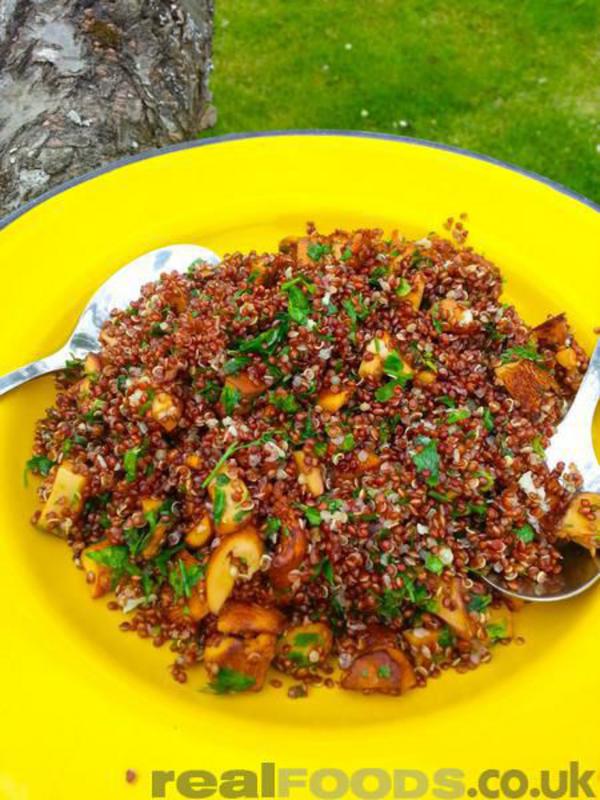 Cook from scratch
Cook from scratch
Processed and packaged foods cost! In addition to the labour that goes into making these foods, you’re often paying a VAT rate of 20% on many ready meals, cakes and treats, whereas the raw ingredients for these foods? Vat free! That’s a fifth of the cost saved already.
We have a huge range of recipes on our site to suit a huge array of budget and diet types, simply search for the ingredient you want to use and marvel at all of the options!
You can find all our recipes here.
Making your own breads, wraps and cakes may seem time consuming but once you get into the habit of it, are buying the flour in bulk and have your timings worked out, it becomes one of the more simple and satisfying tasks around.
Roasting sweet potatoes with coconut oil and salt is a simple yet delicious option. Also try butternut squash and other root vegetables, peppers and squashes for filling, tasty meals. Add them to salads with a sprinkling of seeds for a nutritious boost.
If you’ve a favourite snack that costs you, try making it yourself! Kale Chips are a popular treat, you can make your own using a dehydrator if you’ve got one, or if not, try this recipe. Roasting your own nuts, making your own trail mixes and creating biscuits from muesli are all easy and simple and will save you money.
Buy a ChufaMix. It's a clever component to make your own nut milk and veggie drinks. You simply use a handheld blender to mix your preferred ingredients with water, all of the straining, mixing and measuring is done with the ChufaMix and you can make your own drinks, exactly how you like them and at a fraction of the cost of the usual price. Next time there's a discount on nuts, grab some and start experimenting! Have a look at our article and ChufaMix's infographic here for some ideas.
Budgeting and blogs
Green Lentils are currently the cheapest on offer. As of August 28th they are £49.75 per 25 kgs. That’s a mere 12 pence for a 100 grams. The organic equivalent of dried green lentils is 30 pence per 100 grams. Considering that lentils expand somewhere between 2 and 3 times their original size once soaked and cooked, this is actually roughly 250 grams for 12 pence, or 30 pence for organic lentils. Compared to the cheapest organic lentils in a can (95 pence for 400 grams), this is a bargain! Have a browse at how the price per kilo decreases as the amount you buy increases on our wholesale page.
Try this recipe of Indian-style lentils for a cheap and nutritious meal. It uses canned tomatoes (an excellent mainstay for budget cooking) and frozen spinach to add colour and interest. The lentils in this recipe at the above prices would cost you roughly 60 pence for organic dried lentils or 24 pence for the non-organic.
Planning your meals a week ahead is a great way of working out exactly what you need and can inspire you to find new recipes for the spare ingredients.
Try looking at blogs for plant based foods on a budget. For example A Girl Called Jack has a huge array of vegan and vegetarian recipes with the price per portion already worked out. Try her Smoky Dogs recipe here for a vegan take on hot-dog recipes at affordable prices. Or have a look at Plant Based for Health recipes for some great suggestions.
Spiralizing and fermenting
Spiralizing is a method of cutting vegetables to turn boring courgettes into exciting courgette noodles! Simply use your spirializer (or julienne the strips yourself if you haven’t got one - a veggie peeler works quite well!) to cut thin noodles or thicker curly fries. Many can be eaten raw or need a quick blast of heat to soften them. The firm texture of root vegetables makes them perfect for spiralizing, but you can also use cucumbers, squash or pumpkin, or firm fruits such as apples and pears. Try courgette in place of noodles or sweet potato curly fries instead of chips.
When you simply dice, chop or cube vegetables – you barely get a cup of that food. With spiralizing, one small vegetable can yield many cups of fluffy, spiral vegetables. This way, vegetables and fruits go a long way, so you basically consume a lesser amount of whole vegetables, while feeling like you’re eating a big portion, on account of the noodle shape of spiralized vegetables – for example, one medium red potato is enough for two people to enjoy in noodle form.
Sauerkraut is great for you but can be expensive. Whereas buying a cabbage and some salt is very easy on the pocket! Have a look at this article on fermentation complete with a straightforward recipe to start you off.
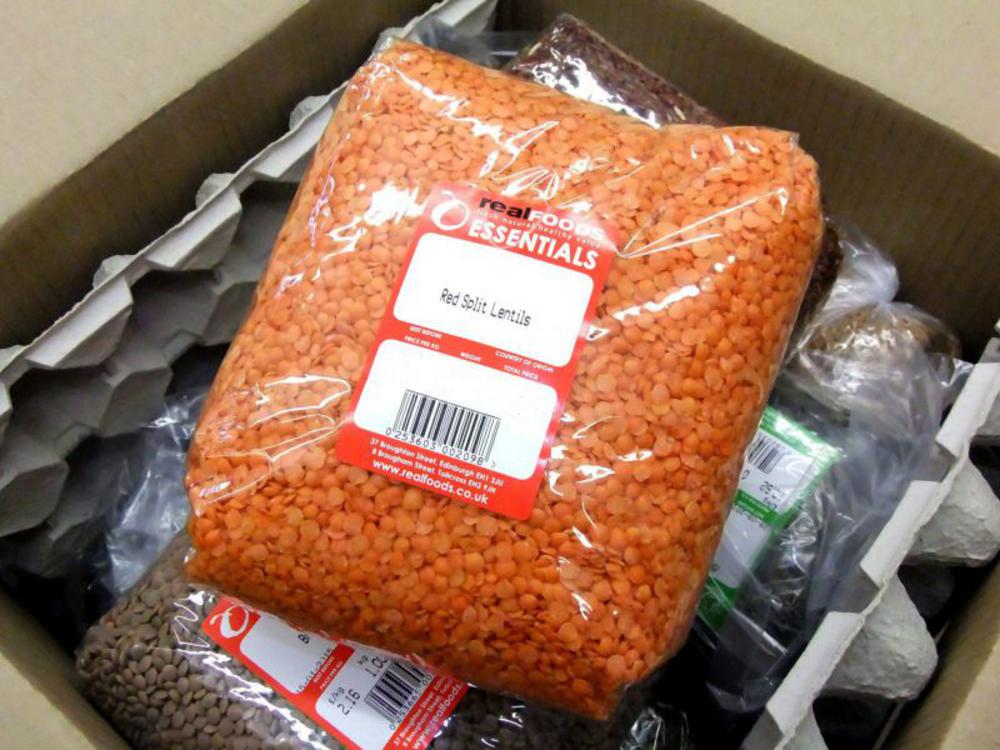 Buy in bulk
Buy in bulk
Staples like rice, beans and lentils are cheaper the more you buy of them. They are also a great source of cheap yet nutritious calories. If you store them correctly (usually a cool, dark place, there’s a reason many people had larders in the past!), they’ll be just as tasty on day 20 as they were the day you bought them. With all of our own-brand dry goods (both organic and non-organic) the more you buy the cheaper the price per kilo, just have a look at our wholesale pages.
Oats are a cheap staple and incredibly nutritious (have a look at our article on oats here, for a breakdown of all the different types and uses.) A simple bowl of porridge in the morning will set you up for the day, reduce hunger pangs and may help lower your cholesterol. Plus it’s cheap, so you can spend your pennies on some fresh or frozen fruit to add a kick.
Soaking beans from dried will save you money, although the tinned ones are a useful backup for days you’ve not planned ahead. Have a look at our guide to soaking and storing pulses to see exactly how long all the dried beans will need.
Here's our bulk dried beans range.
Buying wholegrain flour to get your breads and wraps is a good idea, again the more you buy, the cheaper it gets, buying larger amounts of wholegrain pasta, noodles, rice and cous cous can be useful to have the basis of many meals on hand. Try barley, spelt and other grains for stretching your food further.
We sell all of our bulk items in smaller sizes too, so if you’re unsure if quinoa is for you or want to try out the various mueslis, simply buy a 100 grams and see if you like it. Buy the sack when you know you’ll use it all!
Here’s our wholesale page if you want the full range of our commodities.
Fruits and vegetables
Firstly, eating seasonally and locally usually reduces food miles and cost. Know your seasons so you can shop accordingly. Berries and other soft fruits freeze well, so if there’s glut going cheap, buy them, freeze them immediately and use as needed. Ice cube trays of frozen raspberries are surprisingly useful for everything from cocktails to simple fruit sauces. Some frozen vegetables are cheaper than their fresh counterparts also so try having a few bags of spinach, peas or corn to perk up meals.
Here's our full range of fresh fruit and vegetables.
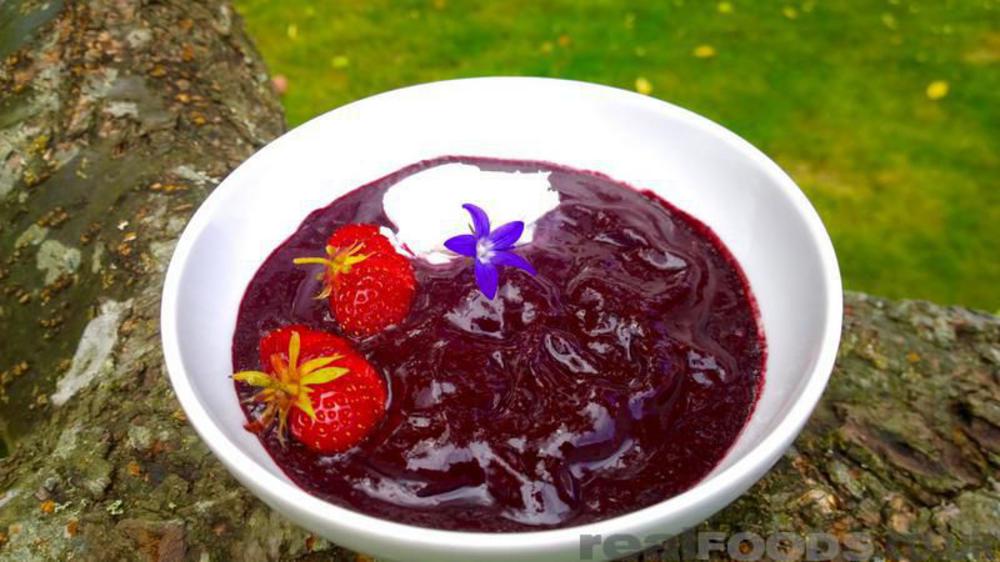 Using leftovers
Using leftovers
Firstly, plan to cook more than you need and you’ll always have some leftovers to play with. Getting some easy recipes for interesting lunches is a good idea, and making soup from scratch with whatever is around is not only budget and diet friendly, it’s pretty satisfying too! You’ll end up with the odd dreadful combination (live and learn) but usually you’ll end up with a tasty meal and often exciting new recipes. Along with soups, try out casseroles, stews and pasta bakes to stretch your leftovers into tasty, filling meals.
Giving yourself the challenge of cooking one new recipe each week is an easy way to force yourself to try new things. Some of which you will love. It also creates more leftovers for you to try other meals with. For example, perhaps you try a Thai Green Curry with tofu, stir fried vegetables and rice, the next day you’ve an amazing base for some soup, simply throw in some coconut milk to soften it, heat it up and enjoy!
There are some amazing blogs following budget meals for almost every taste, get involved, try their recipes, comment on their posts and find your favourites. Start with our recipes section here!
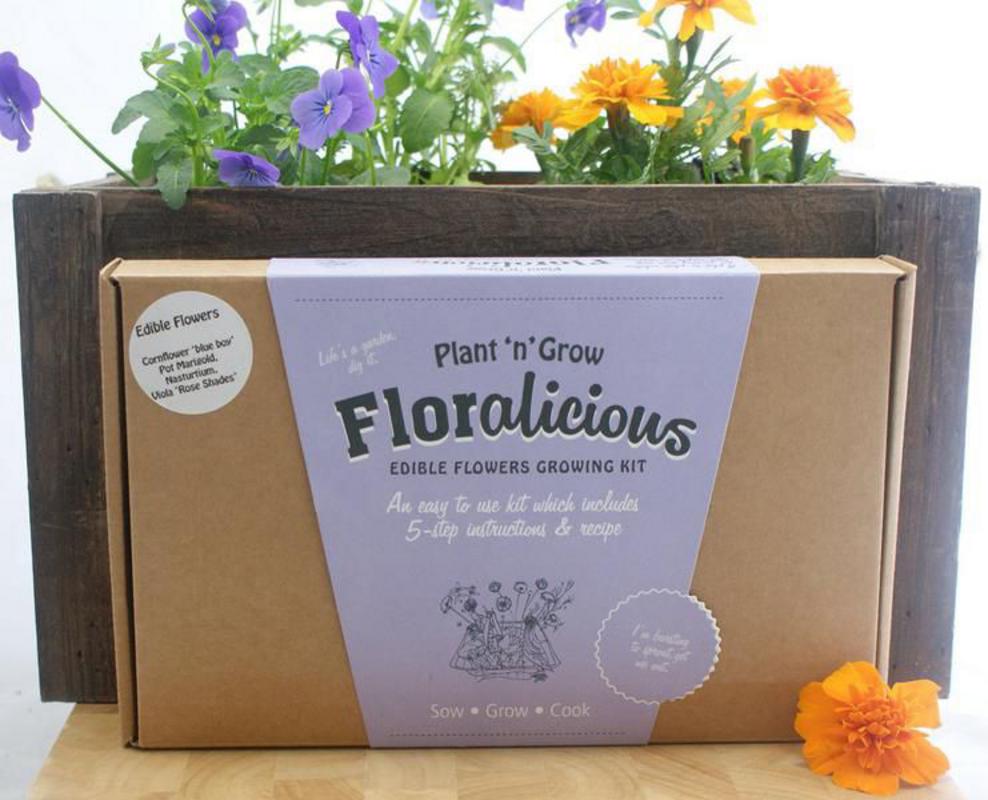 Grow your own food
Grow your own food
Having a window box or veg patch will do wonders for your budget. Sow cannily, try salad leaves and fresh herbs (these are often expensive), or try a grow bag of heirloom tomatoes or other rarer fruits and vegetables to get maximum bang for your buck. Edible flowers look amazing on both gardens and salads. Research your local area, many communities have shared gardens or community allotments to help you grow in company, share out the produce and make new friends! If you’re not lucky enough to have these resources, simply ask around for keen gardeners to help you with cuttings and advice.
Try these micro salad and herb growing kits to start you off.
Forage for free food.
Try picking your own. Nettles are a brilliant source of vitamins, wild garlic is amazing as a pesto and who doesn’t love brambles?
Many folk get concerned that foraging might be viewed as theft, but the law is pretty clear (in the UK at least), foraging for personal use is absolutely legal, for commercial purposes it is not, so as long as you don’t start selling the wild garlic pesto – you’re entirely within your rights to go foraging.
Here’s the simple rules
1. Be responsible, never take all of the fungi, fruit or foliage, it needs to come back next year!
2. Check for signs – if there is a bye-law prohibiting foraging it should be displayed in England and Wales. In Scotland we have wide ranging rights of access, be polite and check the website first if you don’t know the access rules.
3. There’s a huge array of resources to help you forage – try this website for a guide to mushroom picking .
Club together.
Food co-ops are growing in popularity, buying together can give your higher discounts and other people to share tips and recipes with. If you live on your own for example, you may be daunted at 25 kgs of rice, but if a few of you club together you’d be surprised at the savings. It’s also a good idea to share your meals, if you make the casserole, a friend brings the bread and another friend a salad, you’ve a full meal and company to enjoy it with.
Boost your budget
Help is available for many people facing difficulty with their finances. Contact local charities (Citizens Advice in the UK is good) and ask what help is available. Often people don’t realise what exactly they are entitled to, or are too embarrassed to enquire, don’t be! Foodbanks are available for people suffering trying times and many children are entitled to free milk as babies or free school meals when they go to school. Benefits and support are often not widely publicised and you will need to enquire to get the information about entitlements and help.
Vouchers to spend on milk, fruit and vegetables are also available for some pregnant women and families with young children, as part of a scheme called Healthy Start. For more information, talk to your health visitor or visit the Healthy Start website.
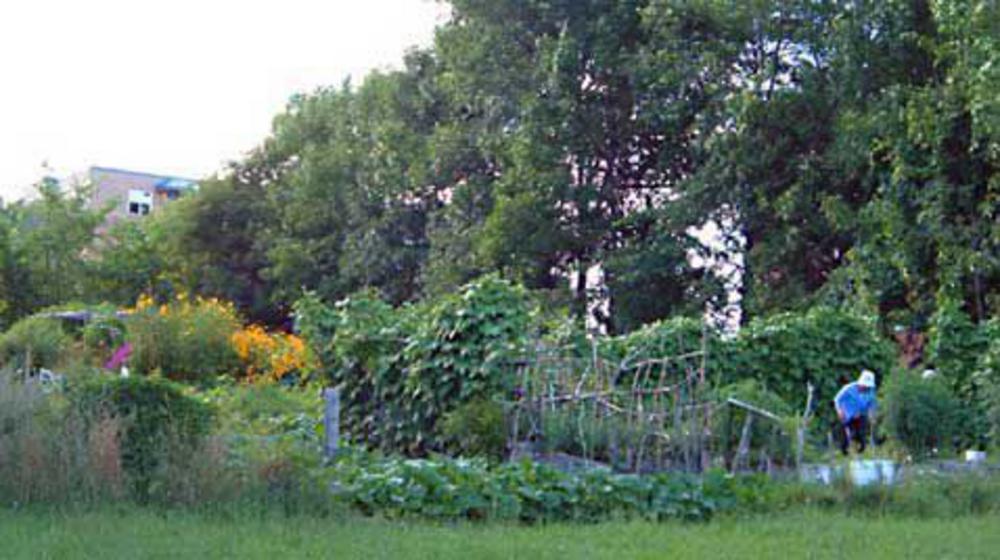 Coeliacs are entitled (in the UK) to some foods on prescription, talk to your doctor for more information. Here's the national prescribing guidelines from the Coeliac Society.
Coeliacs are entitled (in the UK) to some foods on prescription, talk to your doctor for more information. Here's the national prescribing guidelines from the Coeliac Society.
There are also often support groups, for example in Edinburgh there are several community garden initiatives to help people with mental health issues gain support, local communities connect and raise awareness of seasonal and sustainable gardening, you'll often get some bonus potatoes thrown in! In Edinburgh try this website for a quick overview of the initiatives in your area.
Try volunteering. It’s one of life’s great surprises that it is often better to give than receive, the sense of well-being that volunteering can give is priceless and will often lead to new friends and interests. If you’re keen on cooking offer a class to your local residential/care home or try local groups (shared garden schemes, time bank, transition network) these are all ways of sharing and enjoying food and gardening without involving money.